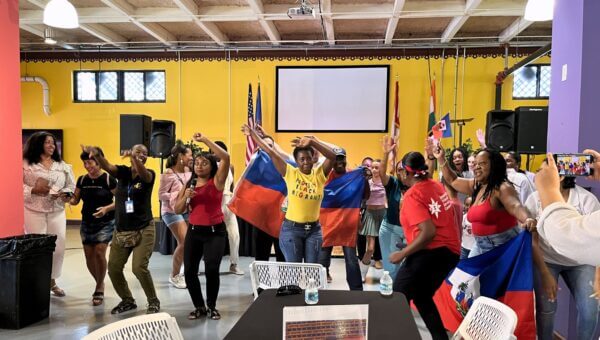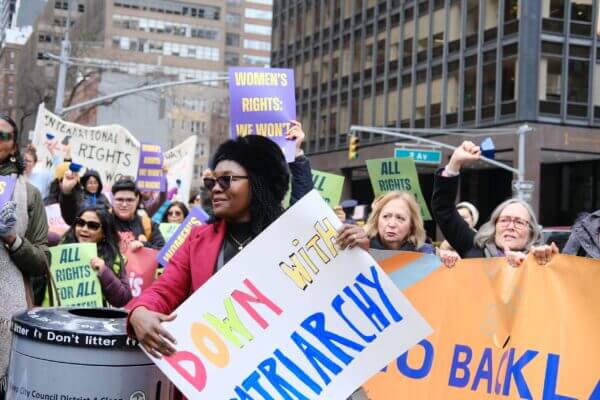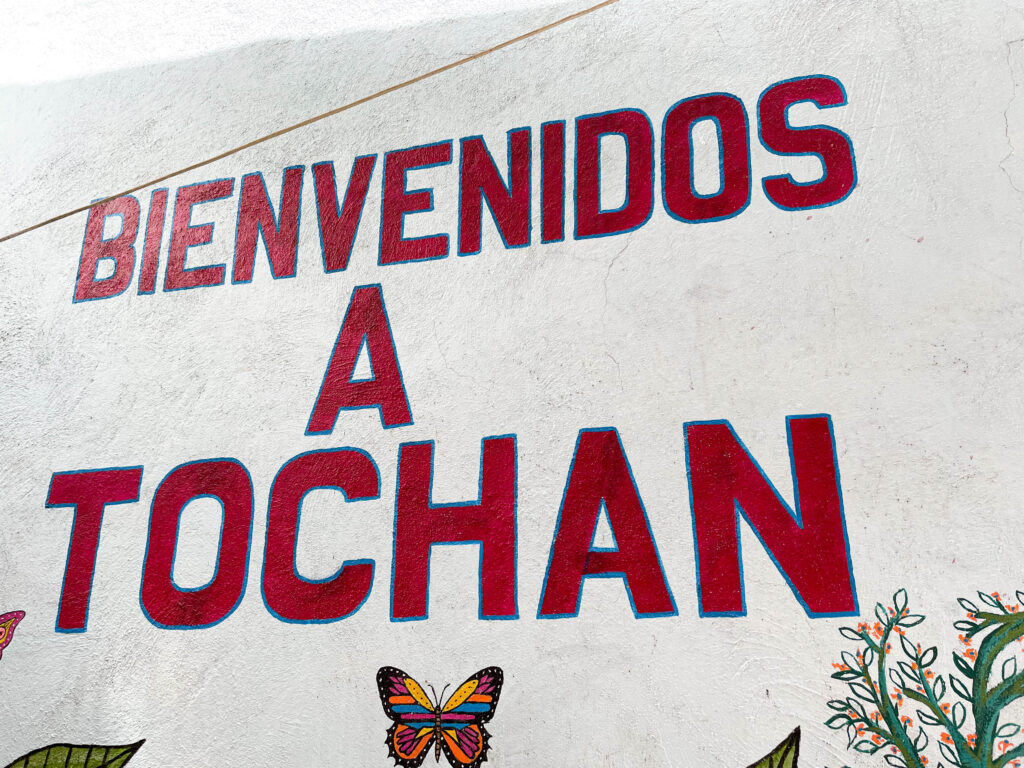
For more than a decade, Tochan Sueños y Realidades A.C. has served the population of individuals migrating through Mexico City. The organization is housed within the Casa Tochan-Nuestra Casa Shelter (Casa Tochan) in southwestern Mexico City, and hosts people in migration for up to three months, providing psychosocial and physical medical support, skills building opportunities, and a space to rest. The majority of the residents at Casa Tochan are men, however in urgent situations the team will accept women as well.
Over the years since Casa Tochan began, the residents and volunteers have covered the shelter in artwork, displaying the beauty of community and crafting a space of positivity.
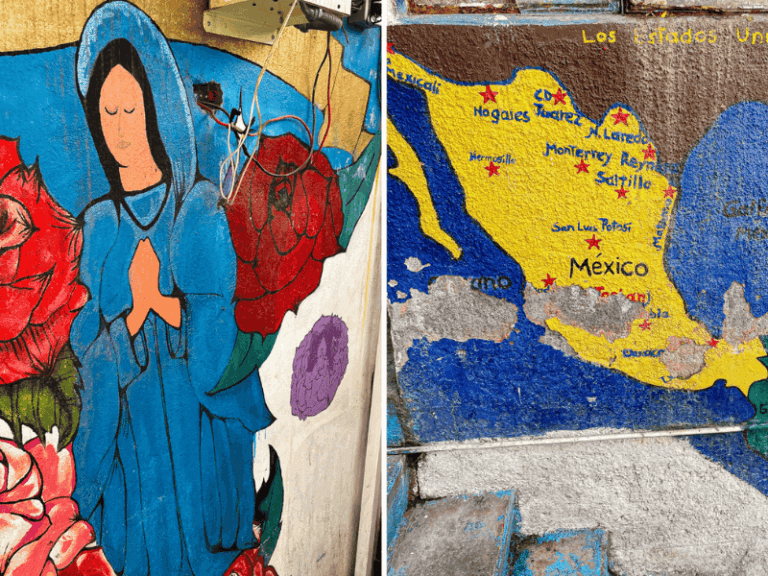
In this spotlight, we take a tour around the Casa Tochan shelter guided by shelter director, Gabriela (Gaby) Tochan.
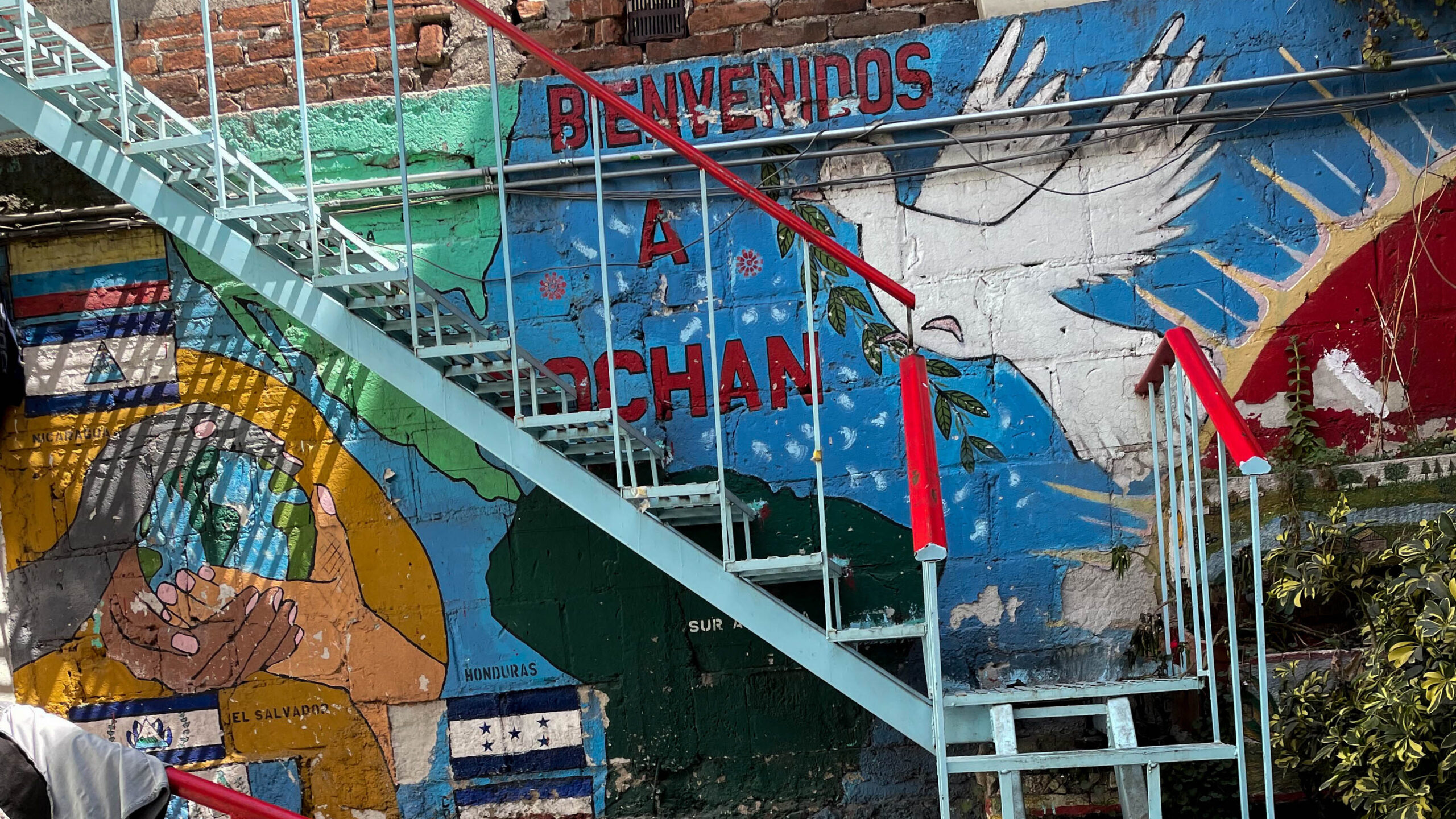
“We were lucky because the first North American volunteers we had came from the Lutheran Church to work an entire year with us from Mondays to Fridays. They started to paint the murals and gave painting workshops.”
“This is our weight area. Here those who can, do exercises.” The actual weightlifting area is to the right and not fully pictured apart from a dumbbell. The mural on the back wall reads “Welcome to Tochan,” accompanied by a dove and olive branch symbolizing peace.
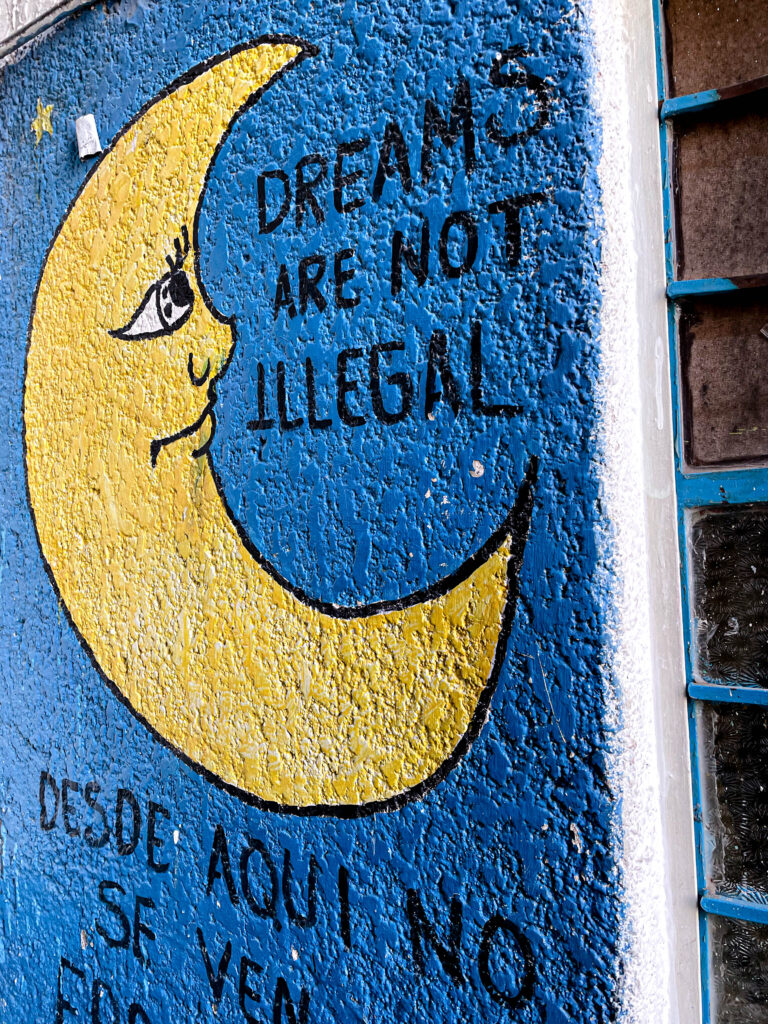
A mural of a crescent moon that states “Dreams are Not Illegal”.
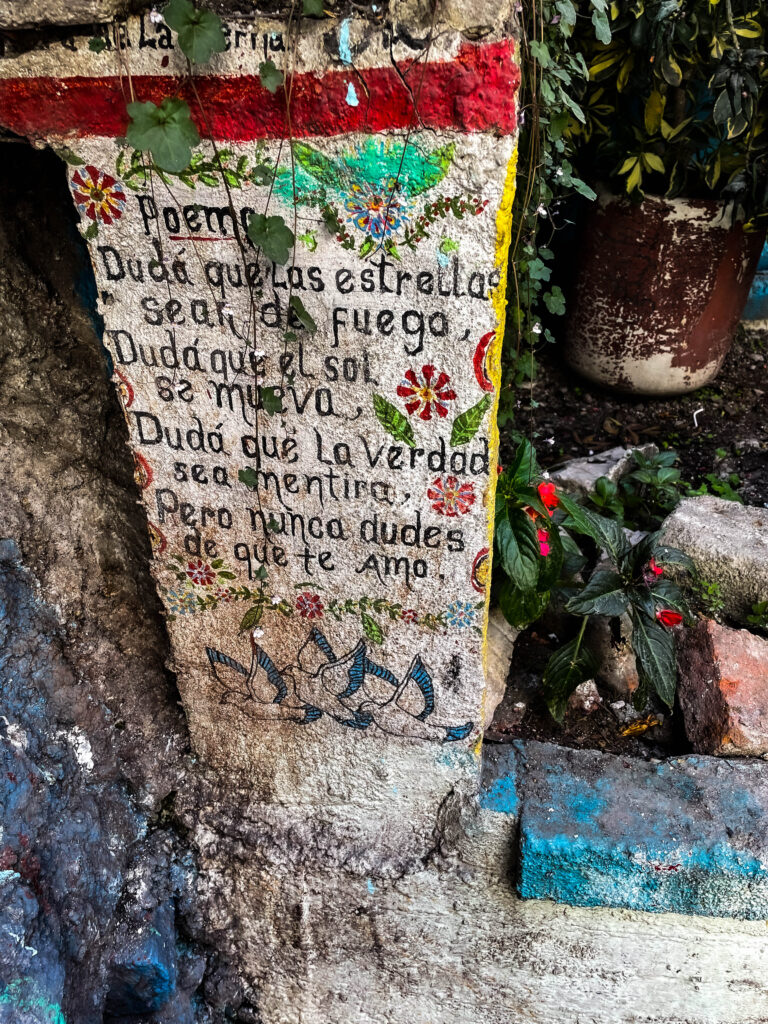
An excerpt from Shakespeare’s “Hamlet” that reads:
“Doubt thou the stars are fire;
Doubt that the sun doth move;
Doubt truth to be a liar;
But never doubt I love.”
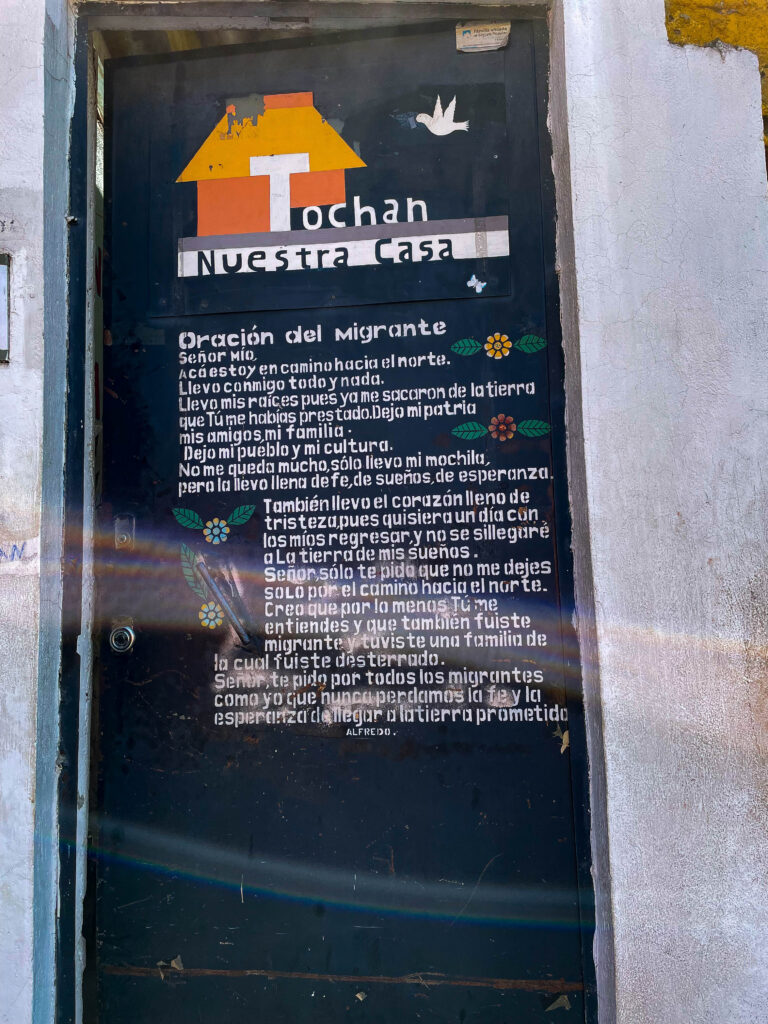
A prayer for migrants:
“My Lord,
Here I am en route to the North.
I carry with me everything and nothing.
I carry my roots since they have already plucked me out of the ground that you had given me.
I leave my homeland, my friends, my family.
I leave my town and my culture.
I do not have much left, I carry only my backpack, but I carry it full of faith, of dreams, of hope.
I also carry a heart full of sadness because I would like to return one day with my loved ones, and I don’t know if I will reach the land of my dreams.
Lord, I only ask that you do not leave me alone along the road to the North.
I believe that at least you understand me, and you were also a migrant and had a family that was displaced.
Lord, I ask on behalf of all migrants like me that we never lose faith or hope to arrive to the promised land.”
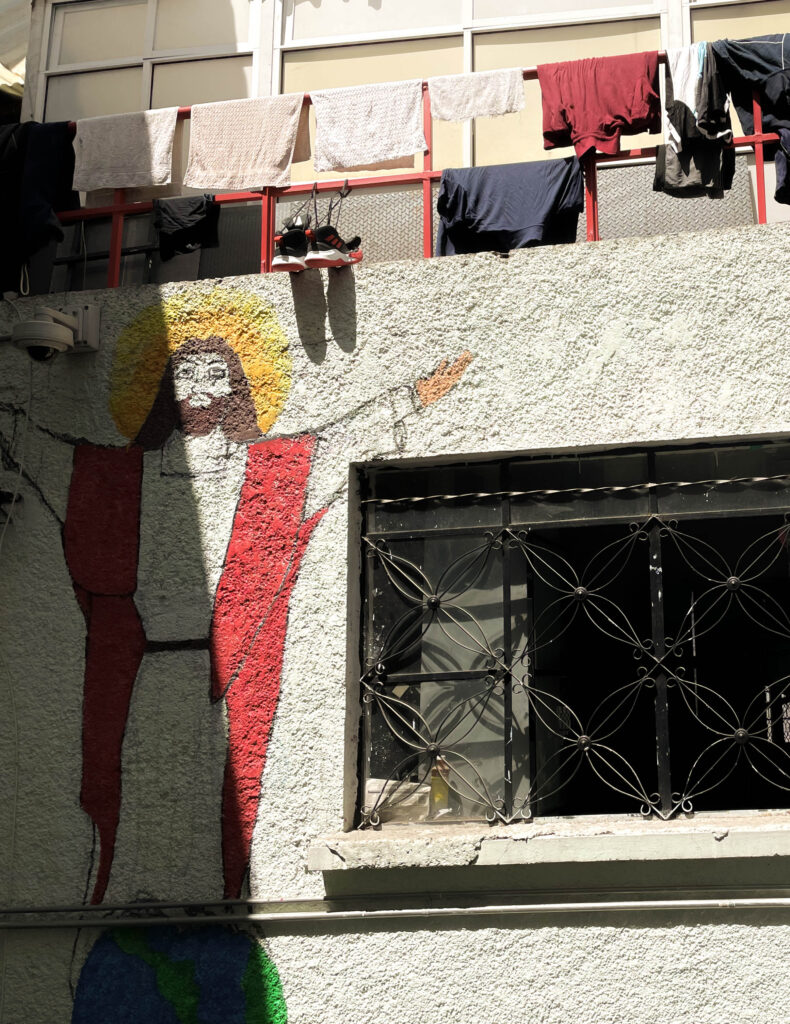
A painting of Jesus Christ standing above the world with his arms outstretched, signifying his protection over the world. This mural is next to a dormitory room.
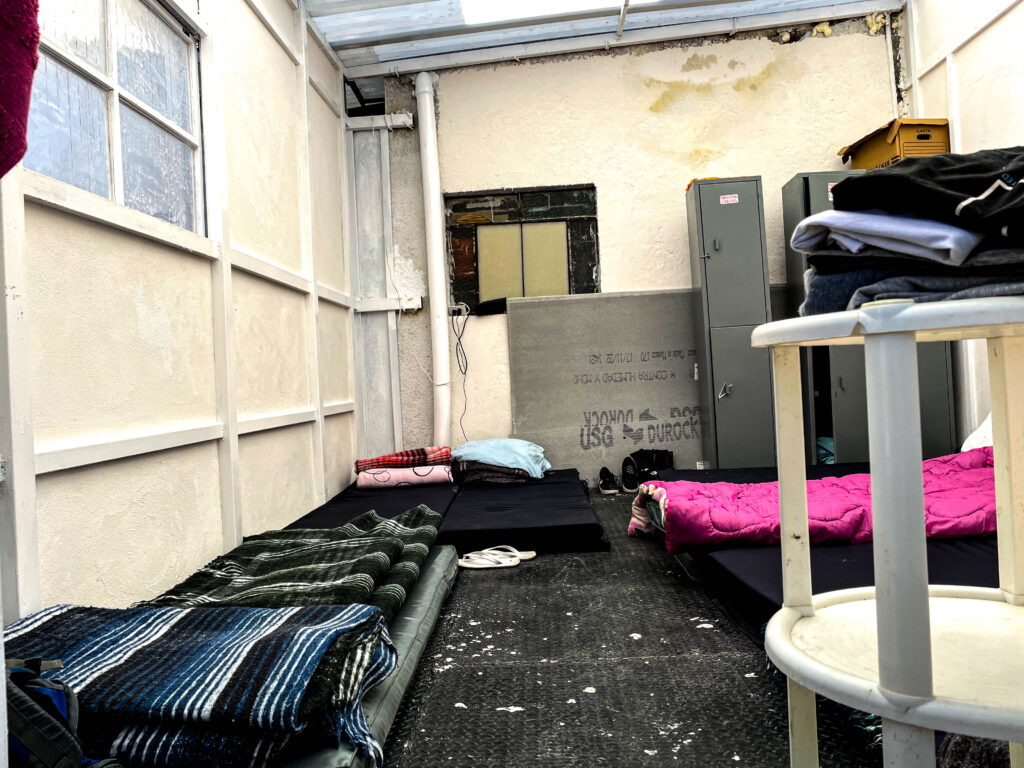
Initially this room was a space for hanging laundry out to dry. However, a colleague came one day and mentioned that the space would be better used as a dorm room, and so it was changed. “Right now, we don’t have beds, but what we want to do is not buy the beds, but make them.” Making the beds will allow them to be customized to the space as bunkbeds attached to the wall.
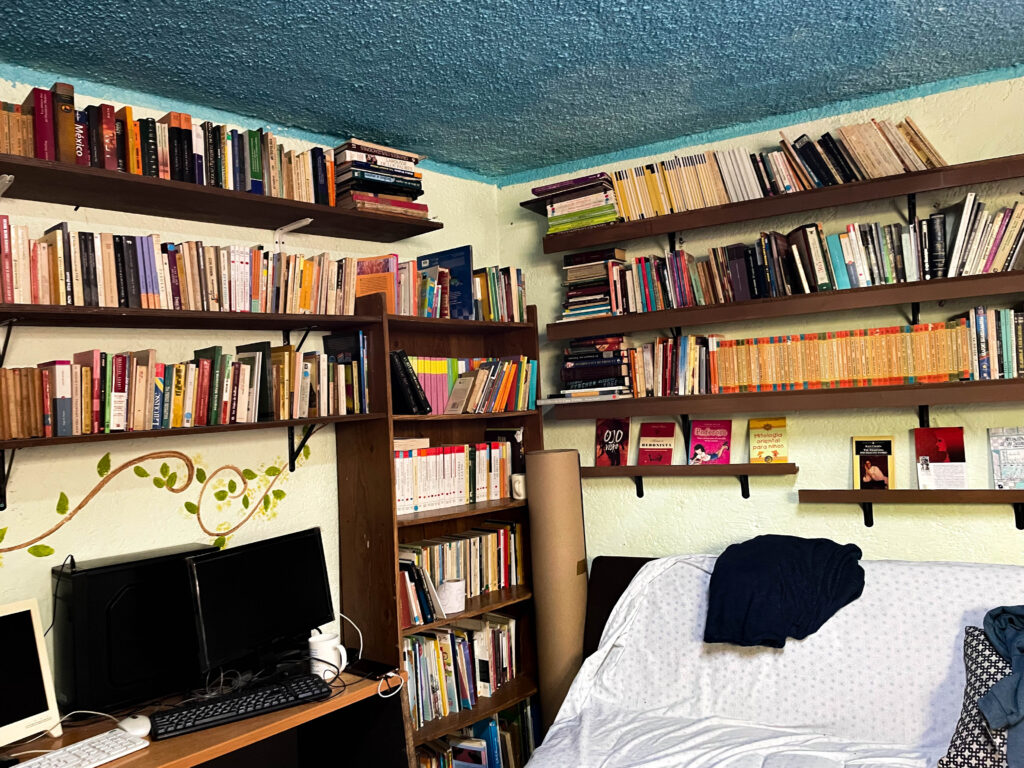
This is Casa Tochan’s library, which features a wide array of books in Spanish and English as well as a computer and other resources. When the shelter is full, it doubles as additional sleeping quarters. In this photo the library was being used as a dorm room by a group of Afghani men in migration.
The library is also used by the residents for their sewing workshop. Currently, the workshop is not happening because the instructor has not yet returned from visiting home in Australia.
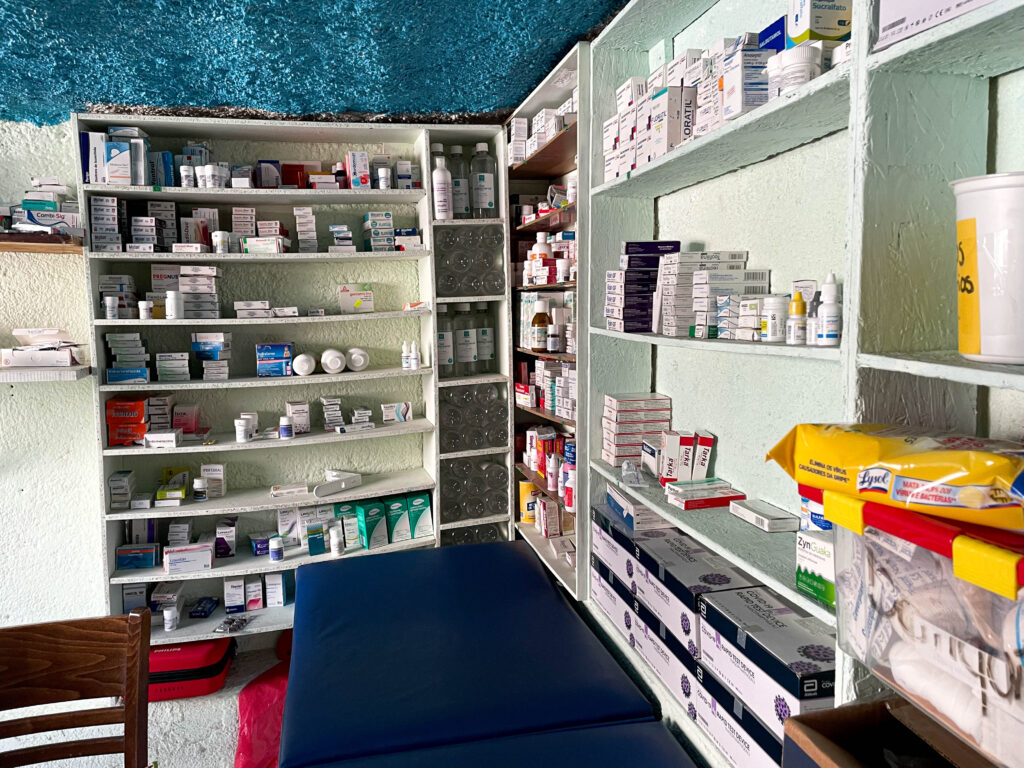
Every weekday a psychologist provides Casa Tochan residents with psychological attention to help them process the traumas they have experienced during their journey and guide them as they settle into their new community or prepare to continue migrating north. In addition, on Wednesdays a general physician volunteers with the shelter to provide medical attention.
Casa Tochan is also supported by two Catholic nuns who have been trained in specialized skills that they voluntarily offer to the shelter. “One [of the nuns] teaches university classes […] and the other is a nurse in the National School of Nursing and Obstetrics. She also helps us with medical consultations.”
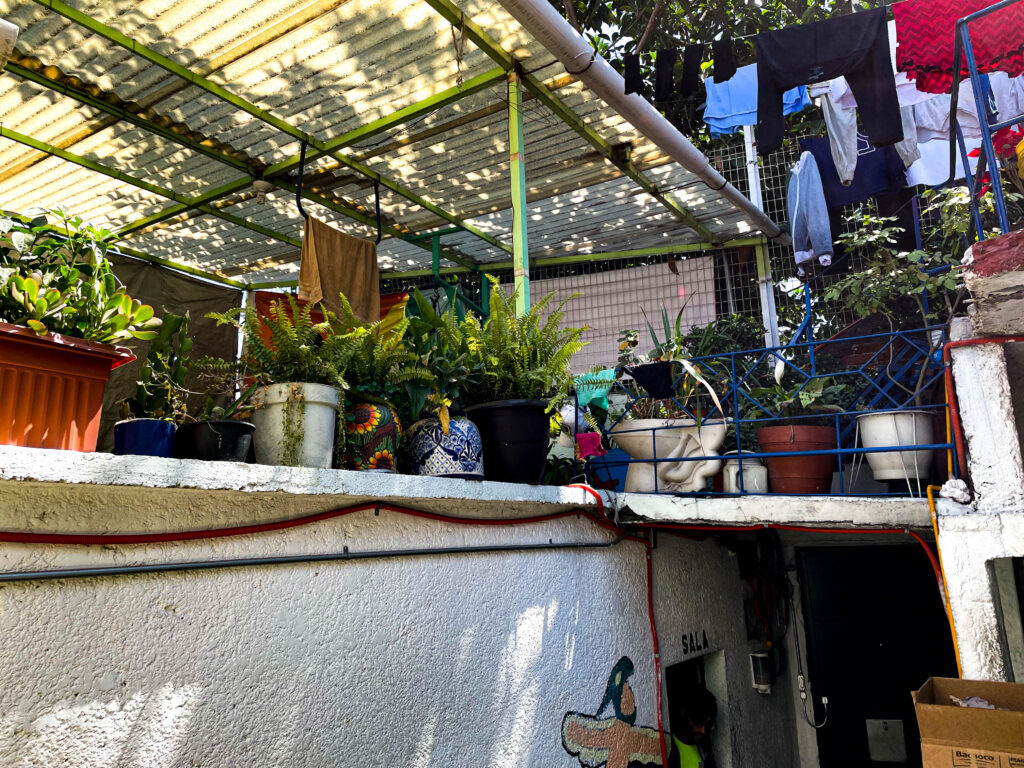
Plants also provide residents with healing benefits. Not only do the plants themselves promote physical and psychological healing by reducing stress, but they also contribute to the community feel of the shelter as all the residents and staff of Casa Tochan care for them collectively. There is also a small garden of tomatoes, lettuce, and other produce at Casa Tochan that residents can eat from. However, the volunteer who first installed the garden fell sick and has not been around to lead the caring of it, so today it is not as fruitful as before. “That is a gap that we have [but] it’s ironic because many of the Honduran and Central American residents here were farmers, but since we haven’t yet been able to [set them up in the garden].”
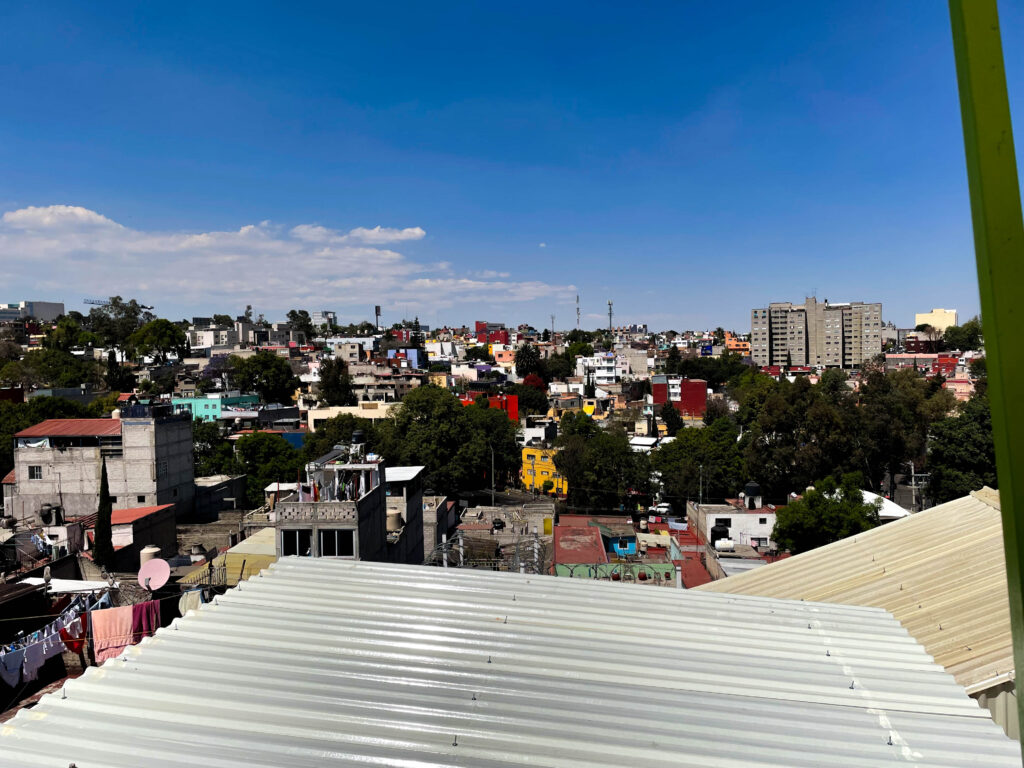
The view from the rooftop of Casa Tochan looking out over the Álvaro Obregon municipality within Mexico City.
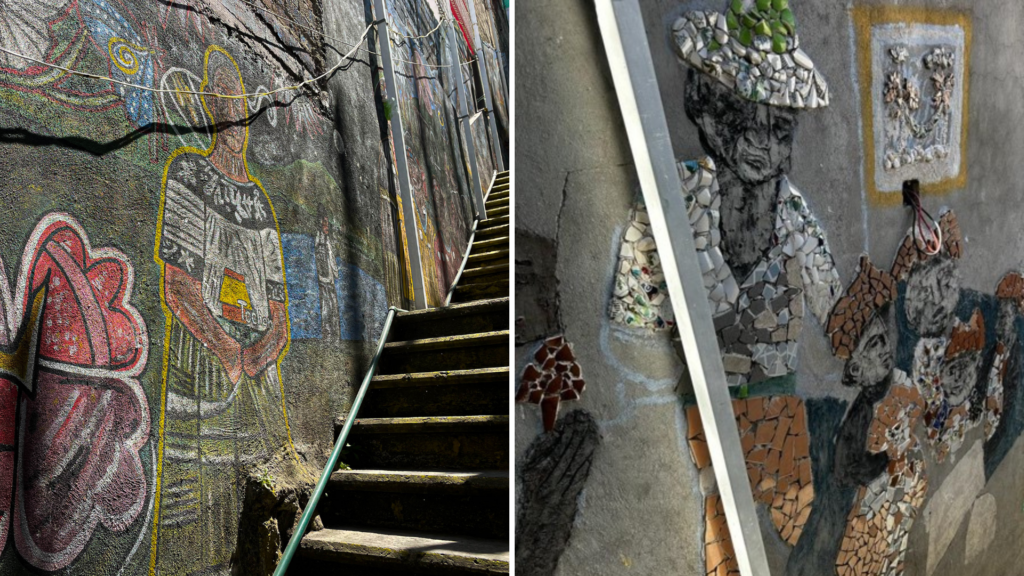
This staircase leads to the traditional entryway of Casa Tochan and is fully covered in murals and mosaics. Due to weather and time, the paintings have begun to fade, or pieces have fallen off. In response, Gaby wants to work on restoring the art pieces to their original states.
“I really want to rescue [these murals] because they were made through a program that came with volunteers and a Jewish school from Mexico who provided materials. [For] the art, a woman came who had previously supported the Madres de la Plaza de Mayo in painting murals. And so, she brought us the technical skills [to make these].”

“This is a heart that a Honduran resident made. He said ‘this is my heart that I’m leaving in Tochan. And these arrows are all of the hurts that have happened. They have since deported him back to Honduras.” Gaby is still in contact with him.
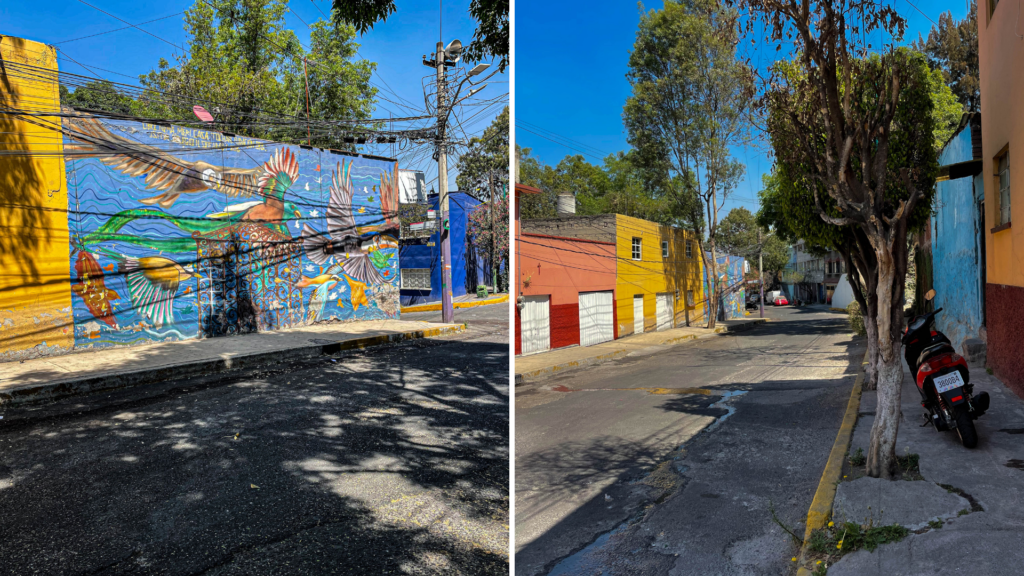
“The group of students and residents also painted a mural […] here on the corner. There is a shop [there]. It was the first shop in solidarity with us. We did not have a telephone and [the shop owner] gave us permission to use his phone and didn’t charge us much. Later, he helped the residents access their money transfers. […] One time, the water shut off and he gave us water.” Gaby also mentioned that the shop owner provided help and support during the COVID-19 lockdown. Overall, the community has always welcomed Casa Tochan.
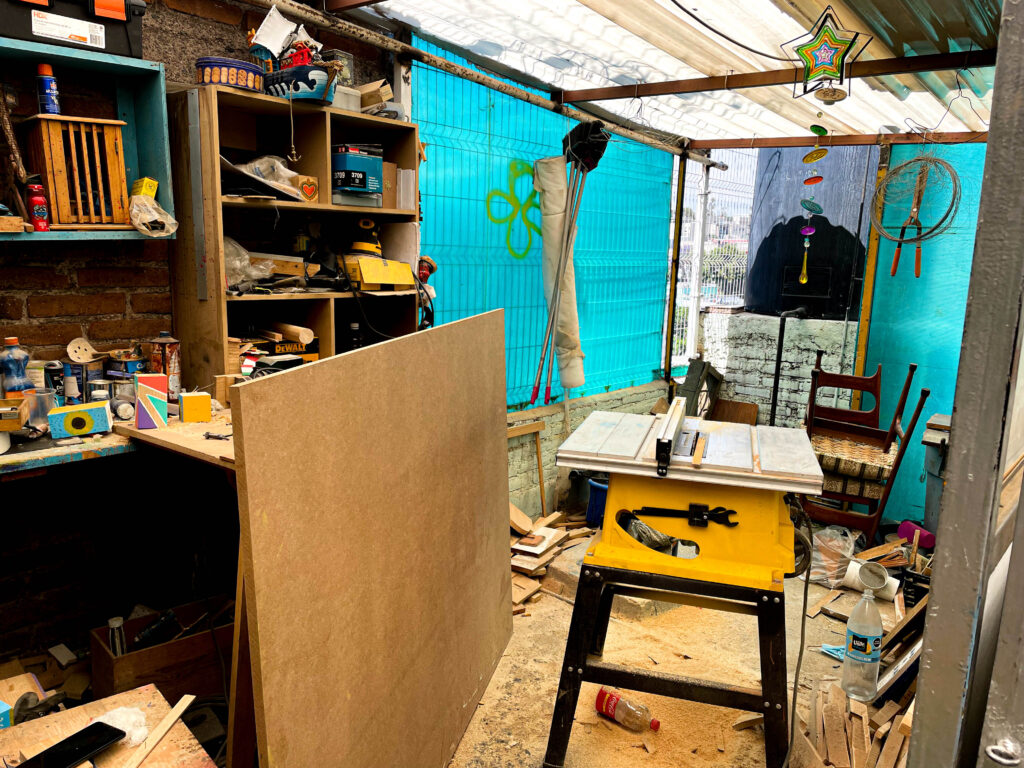
“This is the carpentry studio where they mostly make artisanal crafts.” The residents learn or reinforce their woodworking skills under the tutelage of Casa Tochan’s resident carpenter. The carpenter is a Salvadoran man who was exiled from El Salvador during the war in the 1970s or 1980s.
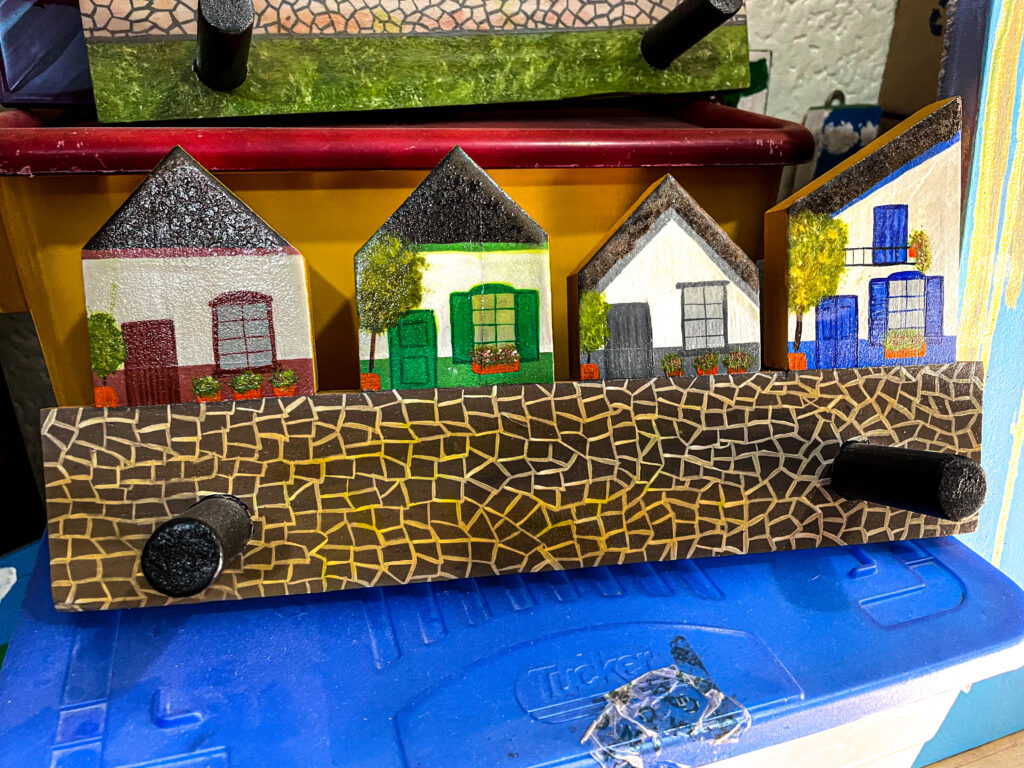
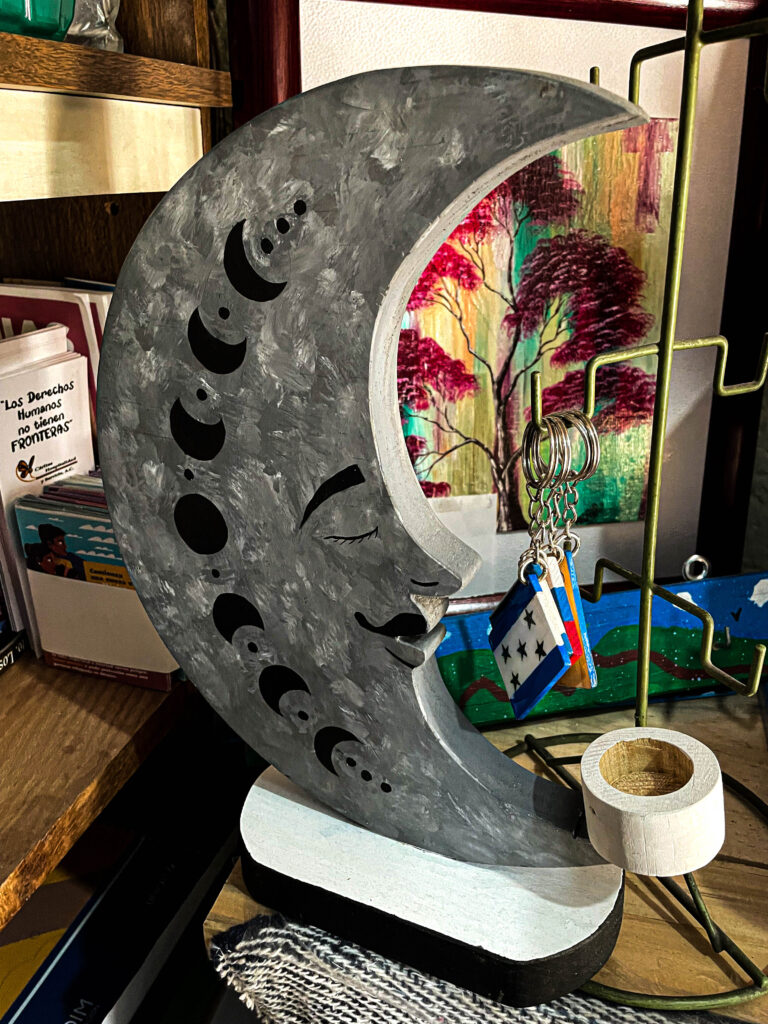
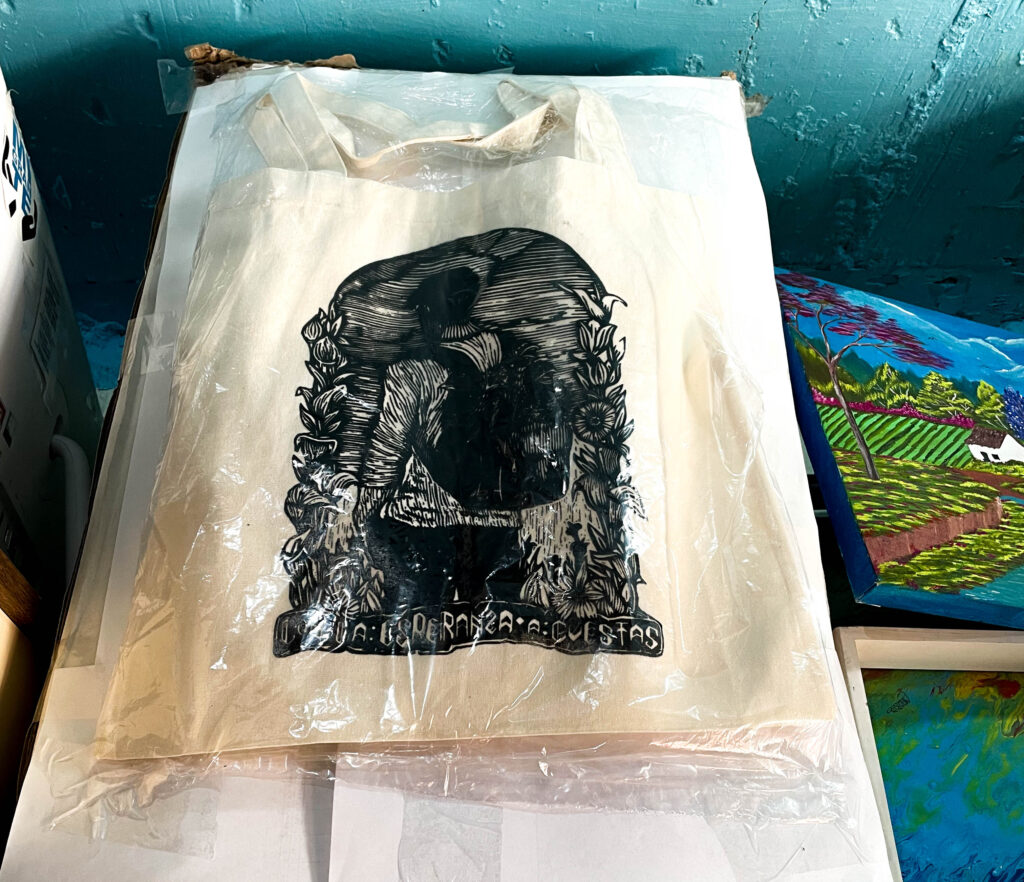
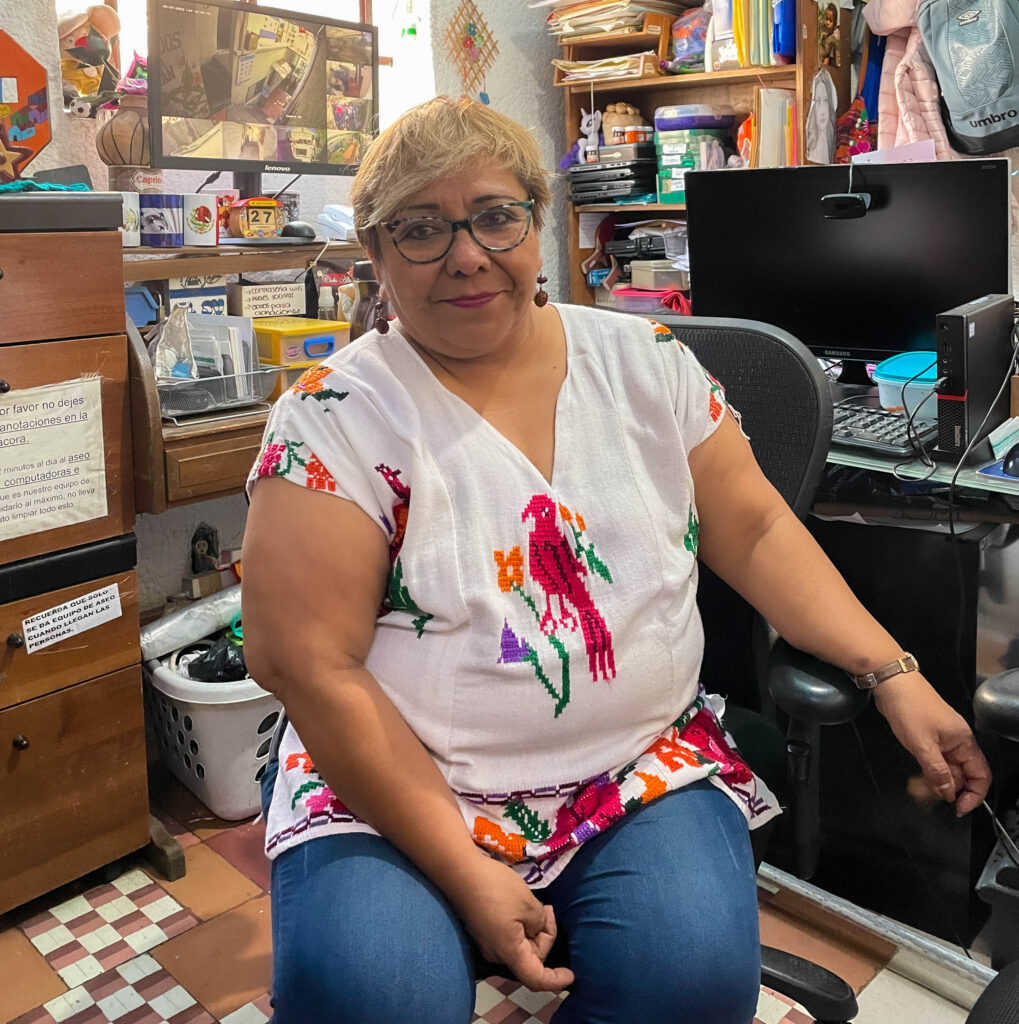
Gaby underscores the importance of community in providing support and attention to persons in migration. As someone who has migrated herself, she understands how important it is to lend a hand to others in the same or similar situations. “I am convinced that this is how we change how people migrate: making others feel valued, helping them resolve the issue of work…”
To learn more about Casa Tochan, visit their website.
Image credit: Casa Tochan

